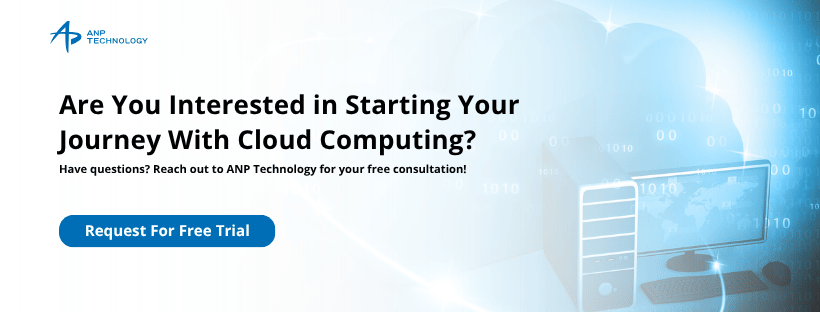
Cloud computing has become one of the hottest topics in technology in recent years. This technology allows us to store, manage, and access data and applications over the internet, without relying on hardware or infrastructure located at our own premises.
In this article, we will explain what cloud computing is, how it works, its types, and the benefits it offers for individuals and businesses.
What is Cloud Computing?
Cloud computing refers to the use of computing services provided over the internet (the cloud). The term “cloud” refers to a network of servers located off-site from the user’s device, typically housed in data centers connected to the internet. By using cloud computing, users can access applications, store data, and perform various other operations without needing to own or manage physical infrastructure.
Simply put, cloud computing enables us to use applications and store data without owning the servers, hardware, or software physically at our location. All of this can be accessed via the internet, offering flexibility, ease of access, and efficiency.
How Does Cloud Computing Work?

Cloud computing operates by utilizing virtual servers managed by cloud service providers. When you access a cloud service, your data and applications are processed on these servers, not on your personal device. These servers can be located anywhere in the world, as long as they are connected to the internet.
Technically, when you use a cloud-based application or store data on the cloud, you send your data to the cloud server. This server processes the data and sends it back to you when needed, allowing real-time access and the ability to easily share data.
Types of Cloud Computing
Cloud computing is divided into several service models, each with its own functions and benefits. Here are the main types of cloud computing:
1. Software as a Service (SaaS)
SaaS is a cloud computing model that provides software applications to users via the internet. Instead of downloading and installing software on your computer, users can access applications hosted on cloud servers. Popular SaaS examples include Google Drive, Dropbox, and Microsoft Office 365.
2. Platform as a Service (PaaS)
PaaS is a model that provides a platform for developers to build, test, and launch their applications. This platform provides all the tools and services required for application development without the need to manage physical infrastructure. PaaS is often used by software developers to avoid setting up and maintaining servers. Examples of PaaS include Heroku and Google App Engine.
3. Infrastructure as a Service (IaaS)
IaaS offers basic cloud infrastructure such as servers, data storage, and networking. IaaS providers allow users to rent servers and store their data in the cloud without managing physical hardware. Users have greater control over the resources they rent. Examples of IaaS include Amazon Web Services (AWS) and Microsoft Azure.
4. Function as a Service (FaaS)
FaaS is a cloud-based service that allows users to run functions or code without managing servers. This is a lighter cloud computing model that enables event-based code execution. FaaS can accelerate application development because developers don’t need to manage the server infrastructure. AWS Lambda is an example of FaaS.
Benefits of Cloud Computing
Cloud computing offers several benefits for users and businesses, including:
1. Cost Efficiency
One of the main benefits of cloud computing is cost reduction. Instead of purchasing and maintaining expensive hardware and software, users can rent cloud services at more affordable prices. These costs are typically subscription-based or based on usage, meaning businesses can save money by only paying for what they need.
2. Flexibility and Scalability
Cloud computing offers the flexibility to adjust capacity and resources based on business needs. If a business grows and needs more storage or computing power, it can easily add those resources without having to buy additional hardware.
3. Easy Access and Collaboration
Cloud allows easy access to data and applications from anywhere and at any time, as long as there is an internet connection. This makes it easier for teams working in different locations to collaborate, as they can share files and work together in real-time.
4. Security and Data Recovery
Major cloud providers often offer high levels of security to protect user data. Cloud services also typically provide automatic data recovery in case of system failure. This gives users peace of mind, knowing their data is safe and can be quickly restored in the event of a disaster.
5. Reliability and High Uptime
Cloud service providers usually offer high uptime, ensuring that applications and data are always accessible to users. Data centers used for cloud computing are often equipped with backup infrastructure to minimize downtime.
Challenges of Cloud Computing
While cloud computing offers many benefits, there are some challenges to consider, such as:
- Security and Privacy Issues: Data stored in the cloud can be vulnerable to cyberattacks. Users must ensure that cloud providers have adequate security measures in place.
- Reliance on Internet Connection: Since cloud computing depends on the internet, a poor or interrupted connection can disrupt access to data and applications.
- Unexpected Costs: While cloud computing is often cheaper than traditional infrastructure, costs can increase if usage exceeds expectations.
Conclusion
Cloud computing has revolutionized the way we store data and access applications. By offering a range of flexible, efficient, and scalable services, cloud computing allows users to focus on what matters most without worrying about managing technical infrastructure. While there are some challenges to keep in mind, the significant benefits of cloud computing make it a top choice for individuals and businesses looking to thrive in the ever-evolving digital world.
This world offers great potential that can be harnessed by anyone, whether a developer, business, or individual looking to better access their data and applications.
Reach out to ANP Technology for your free consultation!




